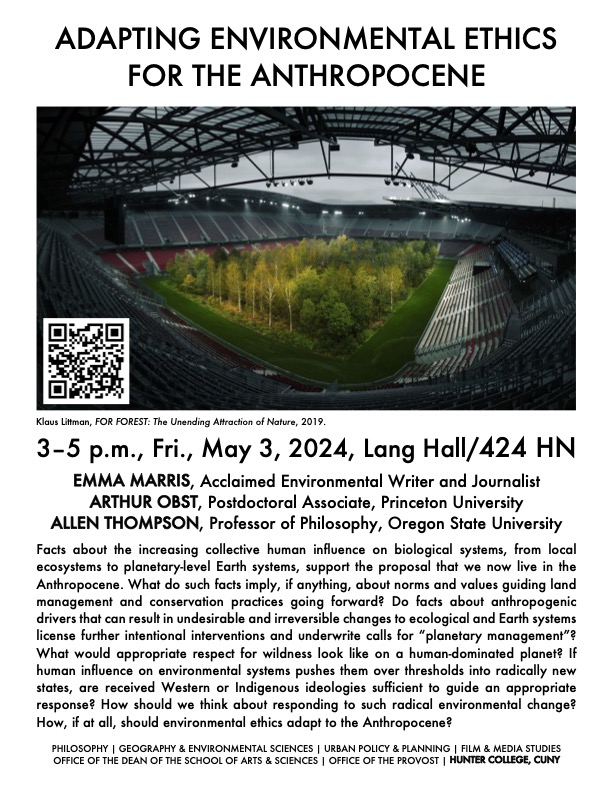With responses from Mark Siderits (Illinois State University)
ABSTRACT: Buddhist philosophers often draw a distinction between two different kinds of truth: conventional truth (saṃvṭi-satya) and ultimate truth (paramārtha-satya). Abhidharma Buddhists philosophers typically understand this distinction in terms of an ontological distinction between two different kinds of entities: ultimately real entities (paramārtha-sat) and conventionally real entities (saṃvṛti-sat). Similar to contemporary philosophical discussions about ordinary objects, Buddhist philosophers debate the ontological status of conventional entities and the semantics of discourse concerning them. Mark Siderits (2015, 2021, 2022) has influentially argued for an eliminitivist position he calls “Buddhist reductionism” that interprets the Abhidharma position as one that denies conventional entities exist but that retains discourse involving apparent reference to them. However, in a recent article Kris McDaniel (2019), a prominent defender of ontological pluralism, challenges that view by proposing that the Abhidharma Buddhist distinction between conventional truth and ultimate truth be “defined up” from a more basic distinction between two different ways an entity can exist: conventionally or ultimately. In this paper I argue that Saṃghabhadra’s account of conventional reality and truth does lends itself well to McDaniel’s proposal but I will also argue that the account of conventional and ultimate truth that results differs in important ways from the models he offers. I will end by offering a modification of McDaniel’s account of conventional truth that is derived from Saṃghabhadra’s pluralist ontology. That view will, unlike the views suggested by both Siderits and McDaniel, allow for there to be ultimate truths about what is conventionally true.
Dinner will be kindly offered by the Columbia University Seminars.
RSVP is required for dinner. Please email Lucilla with eating requirements at lm3335@columbia.edu.
This talk will develop the idea that racial identities are best understood as formed through large scale historical events, and that this genesis can only be obscured by disavowals of racial categories as conceptually mistaken and inevitably morally pernicious. In this sense, races are formed not simply as ideas, or ideologies and policies, as many social constructivists about race argue, but as forms of life with associated patterns of subjectivity including, as a wealth of social psychology has shown, presumptive attitudes and behavioral dispositions (Jeffers 2019; Steele 2010; Sullivan 2005). Because they are historical formations, racial identities are thoroughly social, contextual, variegated internally, and dynamic. It is history that will alter them, not merely policy changes.
This talk reads contemporary debates about structural racism and US history from the perspective of philosophical questions about identity and difference. While many people have argued that America needs to come to terms with or “work through” the racism in its history that has shaped and continues to shape its present structures, it remains difficult to explain what connects this past and the present. Are we talking about one racism with many different past and present forms? Or are there multiple racisms that only share some similar features? In this talk, I draw attention to how these divisions play out particularly in contemporary Black Studies and argue that the philosophy of Gilles Deleuze can offer us resources for thinking about these questions through his discussions of repetition. I argue that understanding our conversations about structural racism and history as conversations about a racism that repeats, can help us to better understand why racism seems to reappear, how to think its disparate forms together, and what presuppositions operate in many attempts to “work through” the past.
Bio: Eyo Ewara is Assistant Professor of Philosophy at Loyola University Chicago. His teaching and research explores the relationships between 20th Century Continental Philosophy, Critical Philosophy of Race, and Queer Theory. His work has appeared in Theory and Event, Puncta, Philosophy Today, Critical Philosophy of Race, Political Theology, and other venues. His current research project is particularly interested in engaging work in Continental Philosophy, Queer Theory, and Black Studies to address questions of identity and difference amongst concepts of race, forms of racism, and forms of anti-racism. How can we better account for the relations between at times radically disparate concepts, structures, and practices such that they can all specifically and recognizably be called racial? What might our account of these relations say about our ability to address racism’s harms?
Facts about the increasing collective human influence on biological systems, from local ecosystems to planetary-level Earth systems, support the proposal that we now live in the Anthropocene. What do such facts imply, if anything, about norms and values guiding land management and conservation practices going forward? Do facts about anthropogenic drivers that can result in undesirable and irreversible changes to ecological and Earth systems license further intentional interventions and underwrite calls for “planetary management”? What would appropriate respect for wildness look like on a human-dominated planet? If human influence on environmental systems pushes them over thresholds into radically new states, are received Western or Indigenous ideologies sufficient to guide an appropriate response? How should we think about responding to such radical environmental change? How, if at all, should environmental ethics adapt to the Anthropocene?

The Saul Kripke Center is pleased to announce that James Walsh (Assistant Professor, Philosophy, NYU) will deliver a talk on Friday, May 10th, 2024, from 4:15 to 6:15 pm at the CUNY Graduate Center (Room 9207). The talk is free and open to all.
Title: Modal definability and Kripke’s theory of truth
Abstract: In Outline of a Theory of Truth, Kripke introduces some of the central concepts of the logical study of truth and paradox. He informally defines some of these–such as groundedness and paradoxicality–using modal locutions. We introduce a modal language for regimenting Kripke’s informal definitions and characterize the modally definable sets. Though groundedness and paradoxicality are expressible in the modal language, we prove that intrinsicality–which Kripke emphasizes but does not define modally–is not.